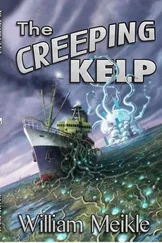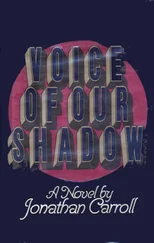“You hear that?” I asked.
Kipps was in the iron circle, sitting back against a sack of salt. He shook his head.
That was the thing about Listening. So often, even when in the company of others, you were on your own. I was used to that. I was a solo operator now. I closed my eyes and focused on the sounds that shouldn’t have been there.
“See you’re back again,” Kipps said suddenly. “Couldn’t keep away.”
I opened my eyes and glared at him. “I’m not ‘back,’ as you call it. I’m just helping Lockwood out today.”
“And the difference is…?”
“She’s getting paid more.” A shadow at the hall door. George looked in. “If you’ve finished your survey, Lockwood wants us to meet in the living room.”
“Okay,” I said. George disappeared; I could hear him in the hall, calling for Holly. “Yes, I’m freelance now,” I went on. “Thing is, Kipps, I prefer the freedom it gives me—working wherever I want, with whomever I want. Not being tied down. It’s a better life somehow—nobler, simpler….” I gave him a noble, simple smile.
“Is that what it is?” Kipps shrugged. “I thought you’d basically just hoofed it when Holly Munro showed up. Still, what do I know? Think this circle’s secure enough? Do we need an extra chain?”
“Yes, it is, and no, we don’t. I’m going to the living room.” I made for the door. I’d given up on the survey: it was too early, and I suddenly wasn’t in the mood.
Outside the big front window the light was almost gone; the laurel hedge by the street was a jet-black bar, a formless mass rearing up to surround us. The brown stripes in the wallpaper had deepened, too. In the flickering light of our candles, they seemed solid, as if we were standing inside a cage. Lockwood and George were there, speaking in soft undertones. They nodded at Kipps and me as we came in.
“Good,” Lockwood said. “Time to get everyone’s thoughts. Where’s Holly?”
“Down in the basement, I think,” I said.
“I called for her loud enough,” George said. He went out.
“How are you doing, Kipps?” Lockwood asked. “Can’t be easy for you, being here.”
Quill Kipps shrugged his bony shoulders. “I’ll just stick close to the chains. It’s not normally what a supervisor has to put up with, but I’m used to it. I don’t think Penelope Fittes likes me much; ever since we teamed up on that Aickmere’s job, I’ve been given low-quality assignments, like the Rotherhithe sewage works, the Dagenham slaughterhouse case, and now hanging out with you.”
“I thought you got a promotion after Aickmere’s,” Lockwood said.
“They had to give me that, because it was such a public success, but they don’t trust me now. I showed a little too much independence. Anyway, what do you care?”
The door opened; Holly and George came in. “Sorry,” Holly said. “Have you been calling?”
“It’s not a problem.” Lockwood produced a packet of biscuits; he handed them around. “Well, we’ve done our first tour. What are your thoughts?”
To my surprise, Holly had taken a biscuit. “A horrible place.”
I nodded. “It’s as we expected. No room is entirely free of psychic repercussions. Very faint so far, but everything makes me feel queasy.”
“That could be the decor as much as anything,” Lockwood said. “It’s like all the brown paint in London’s been used up here. Any sounds yet, Lucy? That’s what it’s famous for.”
“Stirrings, but nothing clear. Wait till it gets dark, then I’ll tell you.”
“Meantime, I took temp readings throughout,” George said. “The coldest places are the basement—particularly one spot near the bottom of the stairs—and the kitchen. Again, that’s what you’d expect—those rooms are where forensics found most of the bloodstains, plus a few tasty scraps our friend Guppy didn’t get around to sampling.”
“Don’t,” Holly said.
“Otherwise,” George went on, “no spectral stuff yet. I thought I saw a skeleton in the kitchen, but it turned out to be Kipps.”
Kipps rolled his eyes. “Oh, stop it, George. Has anyone got any bandages? I’ve just split my sides laughing.”
“Sorry, are observers allowed to talk?” George said. “Don’t you have to save it for when you go scurrying back to Fittes?”
“Okay, okay,” Lockwood said. “That’s enough of that. Kipps?”
“It’s a bad place. But we knew that already.”
“What about you, Holly? Anything?”
She looked uncomfortable. “I keep thinking I’m being watched. Like there’s something behind me.”
“I get that feeling, too,” I said. “When’s it worst for you?”
“I don’t like having my back to the center of the room. Any room.”
“Well, the death-glow’s in the basement,” Lockwood said. “That’s where the killing happened. Guppy must have lured the guy downstairs. Some of us should probably concentrate our efforts there. I’m thinking that we need to station ourselves in several rooms, and rotate the watch occasionally. Lucy, what would work for you?”
“I’ll need to keep moving, follow anything I hear.”
“Okay, that’s fine. First, though, I’ve something to show you all. Come with me.”
He led us out into the hall. Now that dusk was here, the lantern on the porch was properly visible through the glass panels in the door. The snuff-lights glimmered on the stairs.
Lockwood stepped to the middle of the hallway. He pointed to the wallpaper, at waist height, on the right-hand side. “What do you think this is?”
There was a black scuff on the design, where the sheen of the paper had been worn away in a narrow line. It ran along the corridor, stopping and starting; a faint, thin furrow.
“Belly mark,” Lockwood said. “He was so wide, his sides rubbed against the wall as he went along. You’ve got it on the other side, too, here. The carpet shows the same worn pattern. His flat-footed weight wore a pale track down the middle.”
We looked at the lines on the walls. It was a narrow hall, but not that narrow. I imagined the size of the stomach that reached from side to side.
“And there’s something else.” Lockwood took his flashlight from his belt, switched it on, and moved soundlessly down to the kitchen door. The soft, pale light shone on the panes of dirty glass that made up most of the door. The marks on the panes were hard to decipher at first, being so old, and so large. But then your brain made sense of the pattern, and you realized what they were.
“Handprints,” Lockwood said. “Greasy handprints, where he used to push the door open. And look at the size of them.” We did so, in silence. He held up his own hand, narrow and long-fingered; the ghostly mark below was twice the width, and longer still.
Dusk turned to darkness; out in The Leas, a solitary streetlight came on. Inside number 7, each room had its candle or lantern burning. We ate sandwiches, drank tea, and divided up the watch. For the first quarter of the night, Lockwood would take the basement, George the ground floor, and Kipps upstairs. Holly would move between them periodically, checking that each was okay. I would stay mobile, too, following any sounds that might occur. It seemed a good strategy. It was a small house, and we would keep talking to each other. No one would ever get too far away.
I began in the basement, a cold and hateful place, little more than a square of uneven concrete surrounded by bare brick walls. You could see where investigators had excavated sections of the floor, thirty years ago. Lockwood had taken up position here, wrapped in his long coat and encircled by candles, leaning against the wall. He grinned at me as I left him, and I grinned back. We were both caught up in the thrill of the investigation. It felt easier between us now than at any time that day.
Читать дальше









